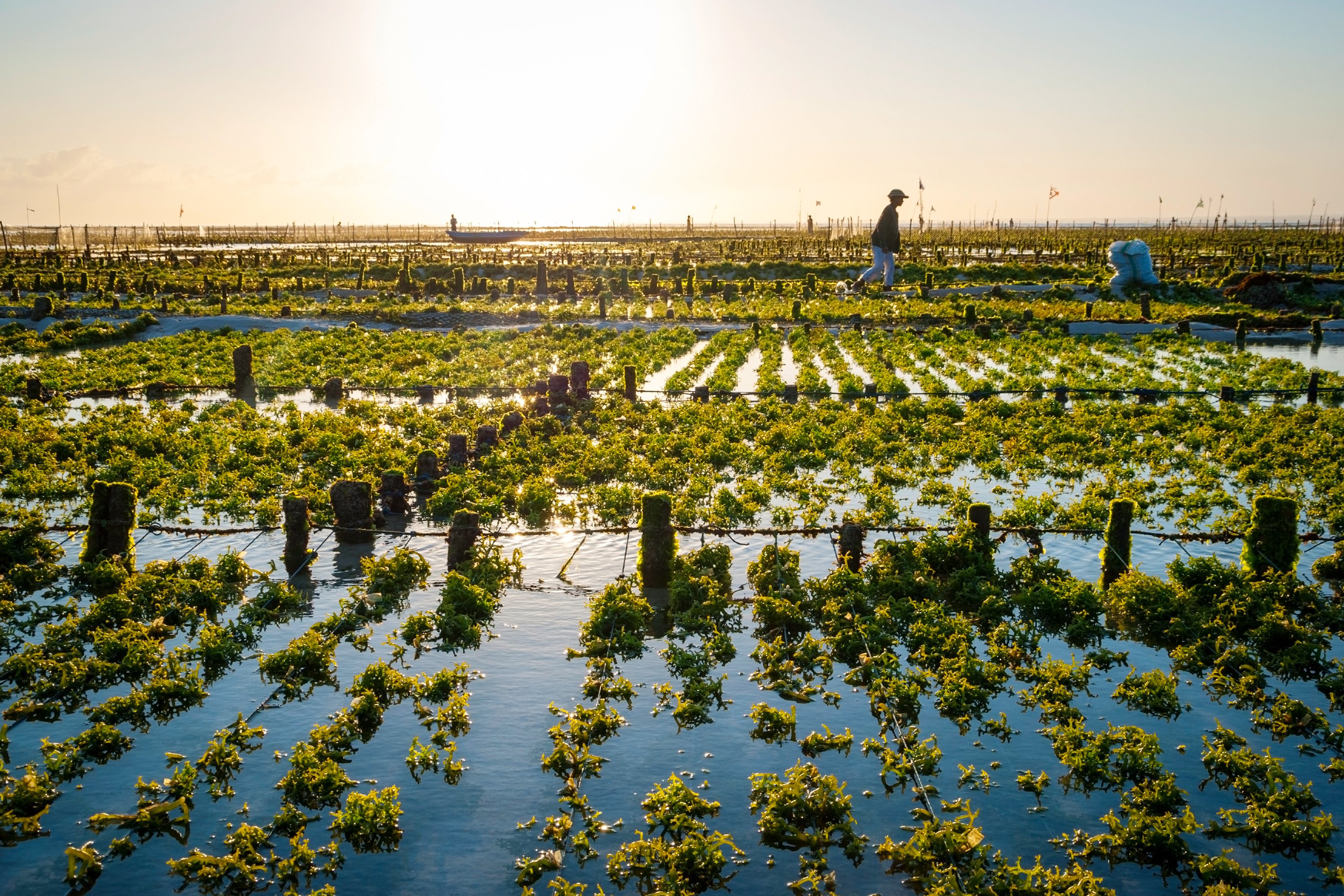Cow’s milk is a common source of nutrition for people around the world. Over 270 million dairy cows produce more than 600 million tons of milk every year. But that protein source comes at a cost — to our environment, our health and our society. Queen’s researchers Pascale Champagne and Laurence Yang are working to create an unusual but sustainable alternative: algae.
Dairy farming is an important global industry, but it has a huge impact on the environment. Cows produce about 4% of the world’s greenhouse gas emissions, along with a significant amount of nitrate-rich wastewater. The production of milk requires about ten times as much energy as the equal amount of food crops, and the transport of milk produces even more emissions.

Champagne and Yang recently received funding from the Queen’s Wicked Ideas competition to study how algae could be used to create milk proteins. “Algae requires very little energy or nutrition to survive,” says Yang. “It also consumes C02 as a carbon source, which makes it a much more environmentally-friendly choice.”
Algae can be grown locally using photo bioreactors, removing the need for arable land. Different strains can be used to adapt to varying climates, and with further study, could be used to create other food products. Algae farming can provide new jobs and improve food security for isolated and remote communities.
The team is currently at the molecular biology stage, working with small quantities to engineer a specific strain and chemically modify it to express the protein found in cow’s milk. Eventually, the goal is to scale up production and create a new platform for growth and distribution.
Champagne says the environmental advantages are important, but equally so are the benefits to society. “The transport of milk increases its price and can contribute to both malnutrition and food insecurity,” she says. “A local source of this protein provides a cost-effective source, as well as an alternative for vegans and those with lactose intolerance. We believe that this could be a real game-changer for global food systems.”